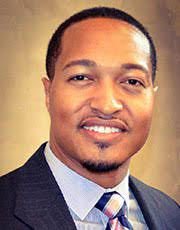On Preaching and the Call to Ministry
Rev. Jason D. Thompson, PhD
Contributing Writer
Sermons incite emotions. They arouse, encourage, and even inspire. Sermons stimulate, entertain, and often excite us. If we are honest, sometimes sermons bore us! But, more than anything, sermons should challenge, disturb, and dare us to do something different and be better than before.
In an email exchange, Bishop Adam J. Richardson offered the following thoughts about the distinctions between style and substance in preaching: (1) the most effective sermons can have both style and substance; (2) most preachers ascribe to the old adage that “good meat makes its own gravy.” (3) whooping is not a requirement, but fervor always has been and still is. An essential question most listeners ask of a preacher while listening to a sermon is this: “Do YOU believe what YOU just said?” (4) In terms of preaching substance, a key to effectiveness is to work at being reflective, being truthful to the text, and demonstrating in a creative way how the ancient text connects to today’s current issues in meaningful ways. (5) In terms of preaching style, it is important to work at being oneself. Of course, it often can take individuals some time to figure out who that is. But doing so is the only way to be truly authentic.
Recently, I thought more earnestly about preaching and the call to ministry when, at the invitation of Bishop Clement W. Fugh, I traveled to Arizona to preach the ordination sermon for the 2022 Desert Mountain Annual Conference. In my preparations, H. Richard Niebuhr’s explanation of how God’s call manifests in one’s life came to mind. Niebuhr describes 1) “the call to be a Christian,” or the call to discipleship; 2) “the secret call,” which he describes as “that inner persuasion…to take up the work of the ministry;” 3) “the providential call, which is that invitation and command to assume the work of the ministry;” and 4), “the ecclesiastical call…the summons and invitation extended by some community or institution of the Church to engage in the work of the ministry” (H. Richard Niebuhr, The Purpose of the Church and Its Ministry, p. 64). It would be hard to imagine any preacher whose journey has not considered Niebuhr’s framework. However, it would be a mistake to believe that God’s call is limited to clergy only. On the contrary, God calls every Christian—lay and clergy—to live in response to God’s call, to live a life of radical obedience and submission to God’s call and will.
In the November 2021 The Christian Recorder, I highlighted two surprising and stunning truths about God’s call. Truth #1: God never calls volunteers. No one ever simply “signed up” for discipleship. Rather, we were summoned, sent for, subpoenaed perhaps. That truth gives new meaning to God’s call: We did not choose God; God chose us. Truth #2: Our unworthiness, unpreparedness, and unreadiness are no deterrent to God’s call for us. God calls us, fully aware that we are quite ordinary, not good enough, not strong enough, and not pure enough for the tasks we are assigned – and then God calls us anyway!
The prophet Jeremiah is an example of a reluctance to answer God’s call. Jeremiah was concerned about his ABILITY: “Behold, I do not know how to speak (v. 6a); his AGE: “Because I am a youth” (v. 6b); and there is an unexpressed concern which God anticipates regarding Jeremiah’s ACCEPTANCE, to which God replies, “Do not be afraid of them, for I am with you to deliver you” (v. 8). One reason Jeremiah’s call proves so inspiring is that it turns out that our abilities, achievements, or aptitude do not qualify us to answer God’s call. On the flip side, our anxieties, disobedience, fears, and inadequacies don’t disqualify us. We recognize this because God informed Jeremiah, “Before I formed you in the womb, I knew you, and before you were born, I consecrated you; I appointed you a prophet to the nations.” (Jeremiah 1:5). Similarly, God had already decided to select us before any of us could claim the merit or proclaim any self-aggrandizing proof.
How often, when faced with the prospect of God’s call, do we become like Jeremiah and offer God a list full of excuses? The interesting thing about excuses is that our meticulously and carefully cultivated reasons why God shouldn’t use us actually, might be true! We ARE unqualified, untrained, and unprepared to assume fully the tasks God assigns. But the beauty in God’s calling of our human limitations is answered through God’s response to Jeremiah — Do not be afraid of them, for I am with you to deliver you, says the Lord.” (Jer 1:8)!
The Rev. Jason Thompson is a member of the 5th Episcopal District and has pastored congregations in North Carolina, Arizona, and Kansas. He is the Interim Director of Music Education and a Visiting Assistant Professor at New York University’s Steinhardt School of Culture, Education, and Human Development.





